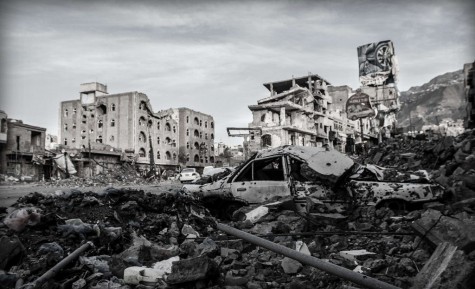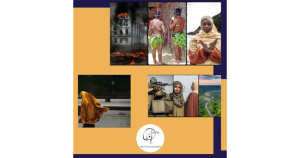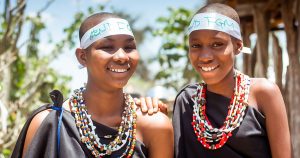20 August 2019
We, the undersigned more than 75 international, regional and Yemeni CSOs, call for the United Nations Human Rights Council (HRC) to extend and broaden the mandate of the Group of Eminent Experts on Yemen (GEE), including a thorough investigation into specific violations against human rights defenders, journalists and bloggers, and the closure of civic space.
The mandate of the GEE, which was created in September 2017 and extended for one year in September 2018, is up for renewal at the 42nd session of the UN HRC in September 2019. The UN High Commissioner will present the GEE’s report at the HRC followed by an interactive dialogue. The GEE’s mandate is to “monitor and report on the situation on Human Rights in Yemen” through “a comprehensive examination of all alleged violations and abuses of international human rights…. committed by all parties to the conflict since September 2014, including possible gender dimensions of such violations,” to “identify those responsible” and to provide “guidance on access to justice, accountability, reconciliation and healing.”
The humanitarian disaster caused by the war in Yemen has been well-reported. Among the many victims are human rights defenders, journalists, bloggers and activists. We encourage the GEE to ensure that upcoming reports increase the focus on the ongoing attacks by all the parties to the conflict specifically perpetrated against human rights defenders, journalists, bloggers and Internet activists. The closure of civic space makes it difficult for civil society organisations (CSOs) to operate, including through restrictions on freedom of expression and assembly, such as travel restrictions on human rights defenders which prevent them from engaging with the UN and the international community at large.
We are deeply concerned about the repeated and persistent closures of the Internet throughout Yemen as well as the targeting of Internet activists by various parties, which has resulted in an Internet blackout. We hope that the upcoming report of the GEE will address all these important issues that directly affect freedom of expression on the Internet.
We are highly appreciative of the important and necessary work of the GEE, which has thoroughly detailed the disturbing human rights crisis in the country. We further support calls to build on this important work and upgrade the GEE into a Commission of Inquiry explicitly mandated to conduct investigations into violations of international humanitarian and human rights law, collect and preserve evidence of such violations, and identify the perpetrators with a view to ensuring that those responsible are held accountable. This would be consistent with the mandate of the GEE.
The mechanism should report directly to the HRC and function independently from its member states. It should also have a multi-year mandate with a view to strengthening accountability and countering impunity for human rights violations.
When releasing its first report in August 2018, the GEE stated that: “The Experts also have reasonable grounds to believe that, since September 2014, parties to the conflict in Yemen have severely restricted the right to freedom of expression. Human rights defenders and journalists have faced relentless harassment, threats and smear campaigns by the Government of Yemen, coalition forces, including those of Saudi Arabia and the United Arab Emirates, and by the de facto authorities in blatant disregard of human rights law.”
The 40-page report includes sections on “Arbitrary detentions, enforced disappearances, torture and ill-treatment” and “Violations of freedom of expression”, in which human rights defenders are mentioned several times. We welcome the references to human rights defenders, activists and journalists who have been attacked and/or are arbitrarily detained in Yemen. We note the particular references to those who have faced threats and relentless harassment or been repressed on the basis of gender. We encourage further attention to the details of the repression they have faced, including building on the GEE’s documentation of 20 cases of women human rights defenders, journalists and activists who “have faced specific repression on the basis of gender” from all sides.
We look forward to seeing the GEE’s next report, and express full appreciation of the dedication and hard work of its members. We sincerely hope that the GEE’s mandate will be extended and strengthened into a multi-year Commission of Inquiry, including a specific focus on threats to human rights defenders, journalists, and bloggers, and the closure of civic space.
Signed,
1. Action by Christians for the Abolition of Torture – ACAT Belgium
2. Action by Christians for the Abolition of Torture – ACAT Germany
3. Action by Christians for the Abolition of Torture – ACAT Luxembourg
4. Action by Christians for the Abolition of Torture – ACAT-Switzerland
5. Adil Soz
6. Algerian League for the Defense of Human Rights
7. Al Manar News – Iraq
8. Al-Nadim Center for the Rehabilitation of Victims of Violence
9. Americans for Democracy & Human Rights in Bahrain (ADHRB)
10. Arab Foundation for Civil Society Support and Human Rights
11. Arabic Network for Human Rights Information (ANHRI)
12. Arseh Sevom
13. ARTICLE 19
14. Asian Legal Resource Centre (ALRC)
15. Bahrain Press Association (BPA)
16. Bytes 4 All
17. Ceasefire Centre for Civilian Rights
18. Civic Space Studies Association – Turkey
19. CIVICUS
20. Cultural Media Center – Yemen
21. English PEN
22. Euro-Arab Organisation for Development and Human Rights
23. Foro de Periodismo Argentino (FOPEA)
24. Freedom of Expression Institute (FXI)
25. Front Lines Defenders
26. Gulf Centre for Human Rights (GCHR)
27. Gulf Forum for Civil Society Organisations
28. Gulf Institute for Democracy and Human Rights (GIDHR)
29. Hadiya Organisation for Human Rights (HOHR) – Iraq
30. Human Rights Concern – Eritrea (HRCE)
31. Human Rights First
32. Independent Journalism Center Moldova
33. Initiative for Freedom of Expression – Turkey
34. Innovation for Change MENA
35. International Association of People’s Lawyers (IAPL)
36. International Center for Supporting Rights and Freedoms, Switzerland
37. International Commission of Jurists (ICJ)
38. International Partnership for Human Rights (IPHR)
39. International Press Centre (IPC)
40. Iraqi Al-Amal Association
41. Iraqi Journalists Rights Defence Association (IJRDA)
42. Journaliste en Danger (JED)
43. Khiam Rehabilitation Center for Victims of Torture
44. Lebanese Organization for Unity and Defending Equal Rights – LOUDER
45. Ligue Burundaise des Droits de l’homme ITEKA
46. Media Rights Agenda (MRA)
47. Mediacentar Sarajevo
48. Media Institute of Southern Africa (MISA Zimbabwe)
49. MENA Media Monitoring
50. Metro Center For Journalists Rights & Advocacy
51. Muwatin Media Network
52. National Forum For Human Rights (NFHR) – Yemen
53. No Peace Without Justice
54. Odhikar
55. Omani Association for Human Rights (OAHR)
56. Omani Center for Human Rights
57. Organisation Tchadienne Anti-Corruption (OTAC)
58. Palestinian Center For Development & Media Freedoms – MADA
59. PEN Canada
60. PEN International
61. Qarar Foundation for sustainable development (QRAR)
62. Reporters Without Borders (RSF)
63. SALAM for Democracy and Human Rights
64. Sentinel
65. Sisters Arab Foundation (SAF), Yemen
66. Sonoshad for welfare life organization
67. South East Europe Media Organisation (SEEMO)
68. Southeast Asian Press Alliance (SEAPA)
69. Syrian Center for Media and Freedom of Expression (SCM)
70. Syrian Organisation for Human Rights
71. Syrian Organisation for Rights and Public Freedoms
72. Syrians for Truth and Justice (STJ)
73. Unión Nacional de Instituciones para el Trabajo de Acción Social (UNITAS)
74. Vigilance for Democracy and the Civic State
75. West African Human Rights Defenders Network (WAHRDN) Togo
76. World Association of Newspapers and News Publishers (WAN-IFRA)
77. World Organisation Against Torture (OMCT)




